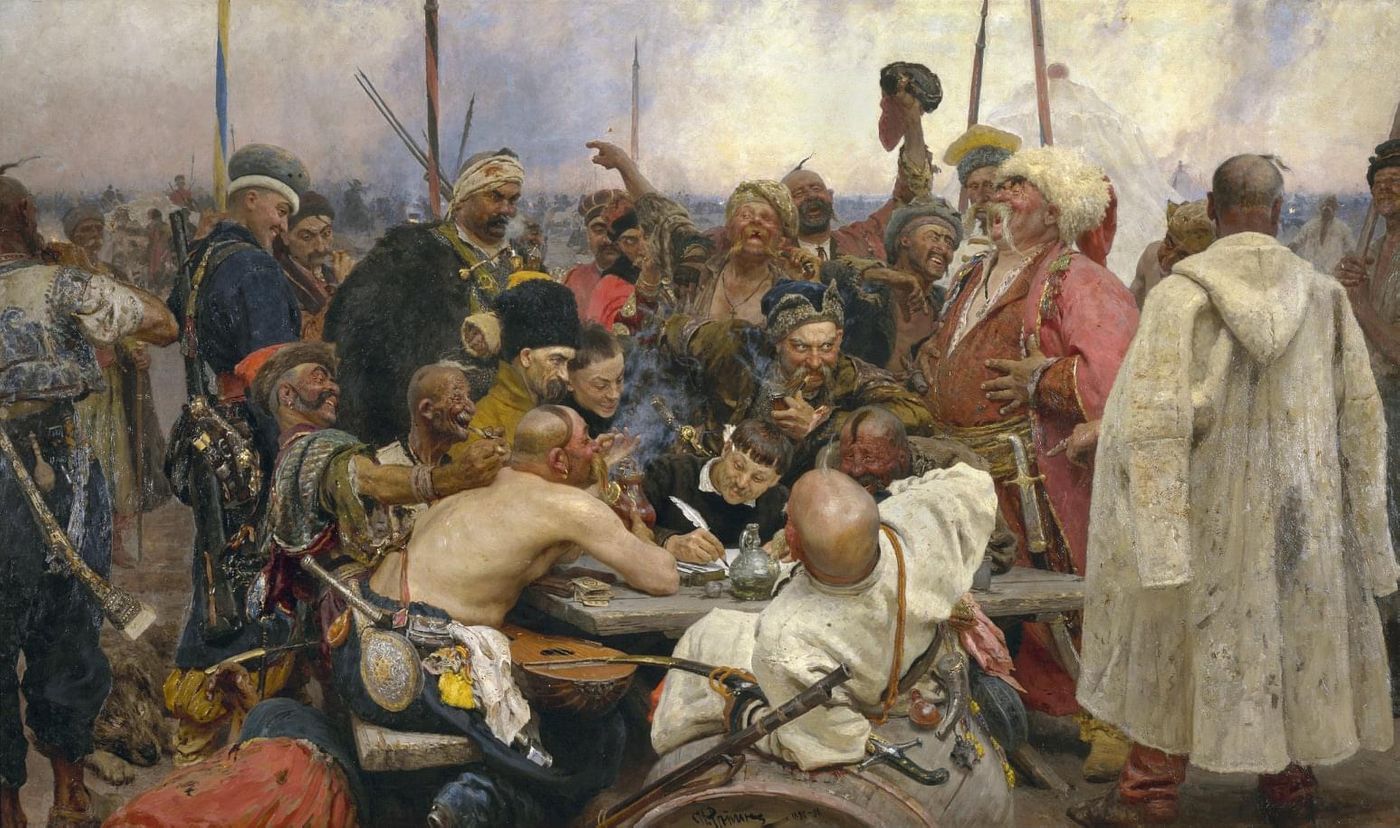
哲學博士生,專長為意識哲學。有鑒追求靈性生活的香港人愈來愈多,惜坊間謬說流行,學院又鮮予重視,誠覺一憾。遂立志融會靈性與知性,助人探索精神世界之各處幽微。
We belong to the Cossacks
[Shuixiang Xiansi] Just finished listening to the two episodes of the world's No. 1 program, and made up for the grievances and grievances between Russia and Ukraine in Chinese, which is cordial and enjoyable. It is rare for the host to carefully compare the situation in Taiwan and Ukraine, only to find that the two places have similar democratic processes and faced similar difficulties.
Unexpectedly, as soon as the second episode aired, I heard the host introduce the Hong Kong documentary "Revolution of the Times" that Hong Kong people can't see. Destiny depends on each other, is it a matter of distance?
After listening to the program, I would like to introduce a few more words about the origin of Ukraine. As I mentioned in this essay, the Putin government has been promoting pan-Slavism both internally and externally for many years in order to expand its territory and revive the prestige of the Tsarist Russian Empire. The so-called Pan-Slavism, that is, advocating to entangle the Slavs scattered all over the world with Russia as the center. Putin often said that the two ethnic groups in Russia and Ukraine have the same language, the same teaching, and the same race. There is no distinction between national boundaries, but primary and secondary must be clearly defined. The Kremlin likes to call Ukrainians "little Russians" on the border and "big Russians". The implication is that Ukrainians should recognize their ancestors and surrender to the central government.
Although the Russians and Ukrainians are indeed close relatives, contemporary Ukrainians obviously prefer to claim to be descendants of the Cossacks than the little Russians on the border. The last stanza of its national anthem, "Ukraine Is Not Dead" (Ще не вмерла України) sings:
Душу й тіло ми положим за нашу свободу,
І покажем, що ми, браття, козацького роду.
For our freedom, our soul and body will be sacrificed.
Let us prove together, brothers and sisters, that we belong to the Cossacks.
Maybe you will be curious, even if the statement is chasing the Cossacks, why bother to prove it? Don't the lyrics imply that his countryman's background is not widely recognized? From this point of view, the memory of the oppression has been deeply imprinted in the national soul of Ukraine.

The name Cossack was originally a Turkic language, originally referring to free nomads, and it has the same origin as the name of Kazakh. By the way, the literal translation of the country's name "Kazakhstan" means the land of nomads. Gu Mingsi, this group of people has always come and gone, scattered in the Eurasian steppe, established large and small tribal countries, and was repeatedly annexed by strong neighbors such as Mongolia and Tsarist Russia. The Cossacks in Eastern Europe are known for their bravery and fighting skills. They once occupied the Ukraine area to form a Cossack emirate, and mediated among the wolf and tiger powers such as Ottoman, Poland, and Sweden, and eventually fell into Tsarist Russia. The Tsarist Russian Empire knew the goods, and the Standing Committee took the heavy responsibility of sending Cossack troops out to attack the city and loot the land, which made the enemy fearful. However, the Cossacks have not been fully integrated into Russia, and they have always been at odds with each other, and the empire is like a double-edged hidden danger.
Are there inevitable conflicts between the two sides' speeches? Ukrainians were indeed the little Rus on the frontier, and the Cossacks were indeed important in Ukrainian history, depending on opinion. The so-called Cossacks were originally mixed with a large number of Russians who were born or fled Polish rule. Unwilling to be restrained by the system, this group of people established themselves on the outer edge of power, and looked at the center of power.
The differences between the two sides are not simply how to understand the past, but also what kind of future they expect. For example, the Cossack chief Mazepa (Іван Мазепа, Ivan Mazepa) once surrendered in the Northern War and united Sweden to attack Peter the Great. Today, the Moscow authorities still regard Mazepa as a traitor, and claim that the civilians who followed the rebels were only a minority, but the Kyiv government regards Mazepa as a hero for protecting the country, and the statue is also printed on silver paper to symbolize the independence of Ukraine. . The truth is far more complicated than the version both parties love. With the help of history, the two sides have undoubtedly declared their beliefs that are diametrically opposed. Russia focuses on centralization, Ukraine pursues freedom. Whether the little Rus or the Cossacks are just symbols.
Taiwanese may not be very aware of the copyright turmoil caused by the early release of the movie "Revolution of the Times". The song "May Glory Return to Hong Kong" was broadcast in the movie, but the creative team of this song accused the shooting team of "Revolution of the Times" of embezzlement. Fortunately, the two sides finally settled down. Having said that, "Time Revolution" and even the anti-extradition movement itself were deeply inspired by the Ukrainian documentary "Winter on Fire" (Winter on Fire). And "May Glory Return to Hong Kong", the most widely sung in the movement, also obviously made reference to the protest slogan that Ukrainians love to use. Isn't it a clear proof that fate is interdependent?
Like my work?
Don't forget to support or like, so I know you are with me..
Comment…